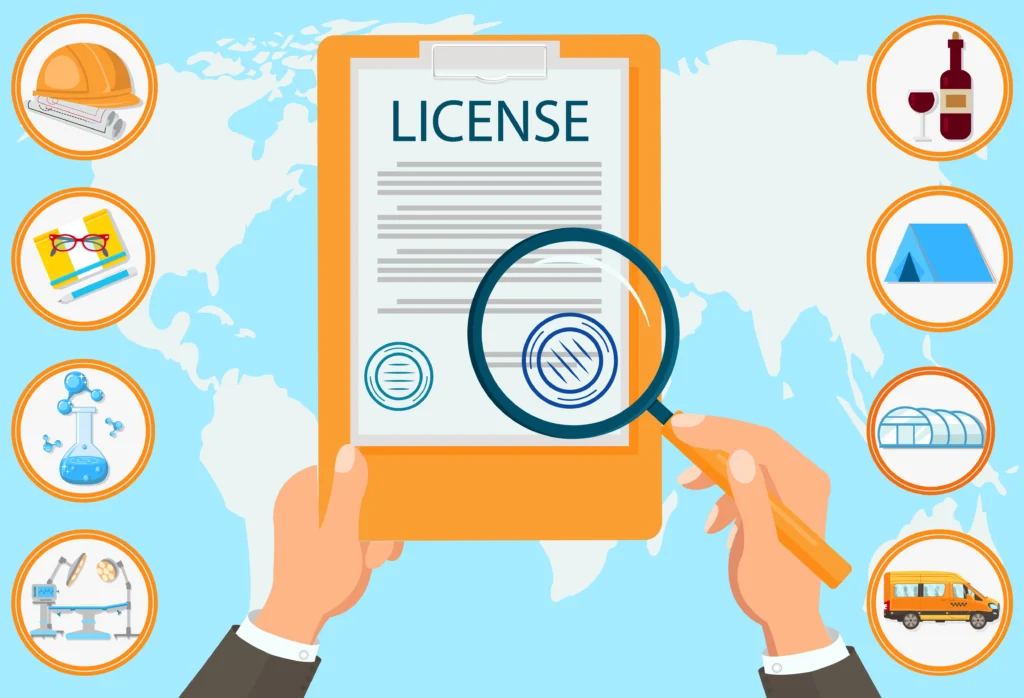The UAE has become one of the fastest-growing hubs for manufacturing, processing, and industrial activities. To legally operate in this sector, businesses must obtain an industrial license in the UAE. Whether you plan to set up a factory, engage in production, or process raw materials, securing the right license is not only a legal requirement but also a step that ensures smooth business operations.
This guide explains everything entrepreneurs need to know in 2025 about the requirements for an Industrial License in Dubai, including costs, documents, and procedures.
What is an Industrial License?
An industrial license is an official approval that enables companies to conduct manufacturing or industrial activities within Dubai or other Emirates. It is issued by the Department of Economic Development (DED) or the relevant free zone authority, depending on the business location.
The license is mandatory for companies that:
- Manufacture finished goods.
- Assemble or package products.
- Process raw materials into new products.
- Export industrial items.
Without an industrial license UAE, businesses involved in production activities cannot legally operate.

Who Needs an Industrial License in the UAE?
Not all businesses require an industrial license. It specifically applies to organizations involved in large-scale operations, such as:
- Factories and manufacturing plants.
- Food and beverage processing units.
- Textile and garment industries.
- Metal and chemical production companies.
- Equipment and machinery assembly workshops.
If your business involves processing, packaging, or large-scale production, obtaining an industrial license in the UAE is a legal requirement.
Requirements for an Industrial License in Dubai 2025
The process of obtaining an Industrial License in Dubai involves several steps. Authorities focus on ensuring businesses comply with safety, environmental, and economic regulations. Below are the essential requirements:
- Business Plan Submission
A clear plan outlining the nature of the industrial activity, production capacity, raw material usage, and workforce requirements. - Physical Workspace
A warehouse, factory, or industrial facility must be available. Virtual offices are not allowed for industrial activities. - Approval from Authorities
Approvals may be required from government bodies such as Dubai Municipality, Civil Defense, and the Ministry of Health, depending on the industry type. - Environmental and Safety Compliance
Businesses must follow the UAE environmental and safety standards before they are approved. - Capital Investment
A minimum level of capital investment is often required to ensure the project’s financial stability. - Workforce Commitment
Hiring of skilled labor is mandatory, with registration under the UAE Ministry of Human Resources and Emiratisation.
Documents Required for Industrial License in the UAE
When applying for an industrial license UAE, you will need to provide:
- Completed the application form from the DED or the free zone authority.
- Passport copies of shareholders and partners.
- Memorandum of Association (MoA).
- Initial approval certificate.
- Lease agreement for industrial space.
- Environmental and technical reports.
Industrial License Cost in 2025
The industrial license cost in Dubai varies based on business size, location, and approvals required. Key factors include:
- Government fees for the license.
- Costs of approvals from external authorities.
- Rent for industrial facilities.
- Additional costs for environmental and safety compliance.
On average, the cost to register an industrial license in Dubai starts from AED 10,000 and may increase depending on the scope of operations. Businesses should also consider ongoing renewal fees.
Benefits of a UAE Industrial License
Obtaining a UAE industrial license offers several advantages:
- Legal authorization to operate industrial activities.
- Access to the UAE’s advanced infrastructure and logistics.
- Ability to trade and export products internationally.
- Opportunity to apply for government incentives and subsidies.
- Enhanced credibility and investor confidence.
Final Thoughts
For entrepreneurs planning to establish manufacturing or processing businesses in the UAE, obtaining an industrial license is a crucial step. By meeting the requirements, preparing the right documents, and budgeting for the industrial license cost, businesses can ensure smooth operations in Dubai’s competitive market.
Whether you are setting up in the Dubai mainland or a free zone, the process requires careful planning and compliance with regulations. Partnering with a Business Setup Consultant Service in UAE can make the journey easier, ensuring you avoid delays and stay compliant. Securing your Industrial License Dubai not only keeps your business legally protected but also positions you for growth in one of the world’s most dynamic industrial hubs.

